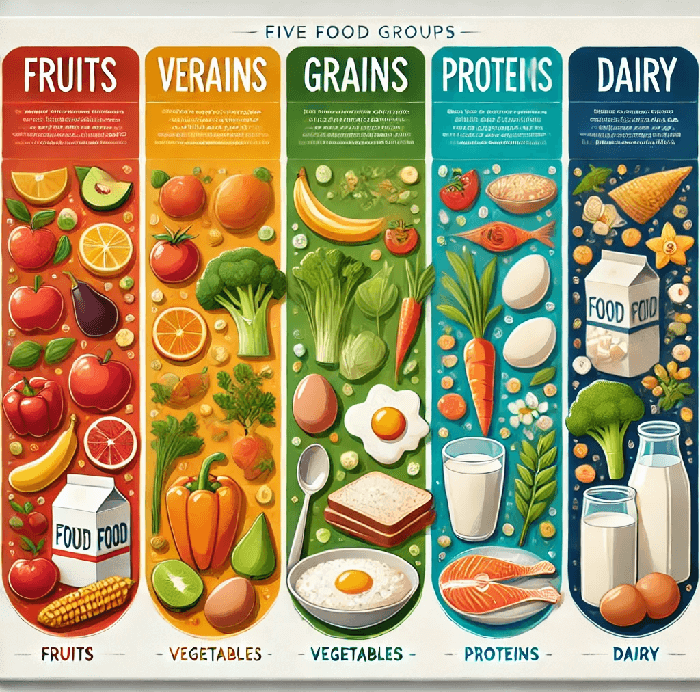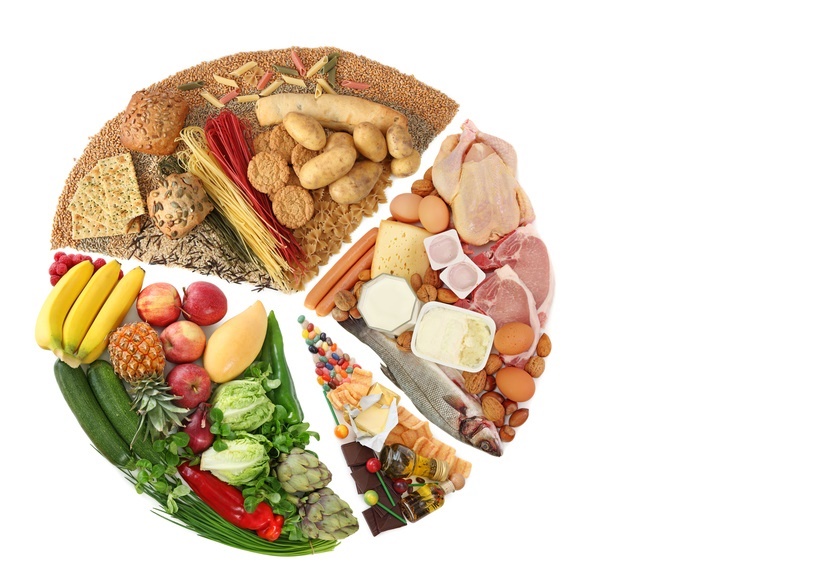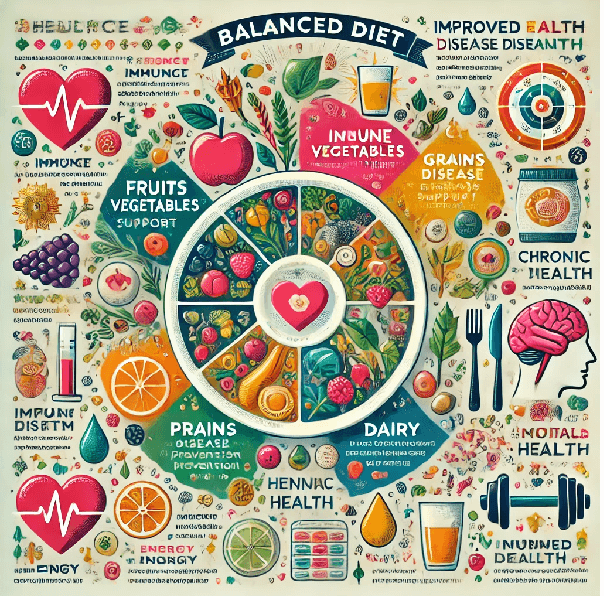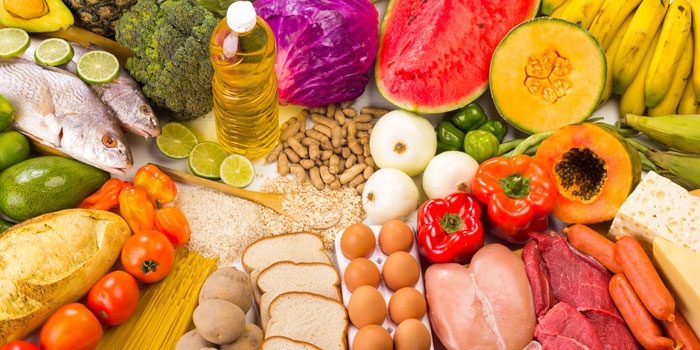A balanced diet includes various foods from all food groups: vegetables, fruits, grains, protein, and dairy. Each group provides essential nutrients for health. What food is in a balanced diet? Eating a variety of foods in proper proportions ensures your body receives all necessary nutrients. The main food groups are fruits and vegetables, starchy carbohydrates, dairy products, protein sources, and oils. Each group contributes different nutrients; for instance, fruits and vegetables provide vitamins, while grains offer carbohydrates. Maintaining a balance of these nutrients is crucial for a healthy lifestyle.
How to Create a Healthy Plate
What are the 7 Things You Need for a Balanced Diet?
There are seven nutrients that are essential for human life: carbohydrates, fats, proteins, vitamins, minerals, water, and fiber. A balanced diet contains all of these nutrients in the right amounts.
Carbohydrates are the body’s main source of energy.
They should make up about 50-60% of a person’s daily caloric intake. The best sources of carbohydrates are fruits, vegetables, and whole grains.
Fats are an important part of a healthy diet.
They provide energy and essential fatty acids, and help absorb fat-soluble vitamins. Fats should make up about 20-35% of a person’s daily caloric intake. The best sources of healthy fats are nuts, seeds, avocados, fish, and olive oil.
Proteins are needed for the growth and repair of tissues. They should make up 10-35% of a person’s daily caloric intake. The best sources of protein are meats, poultry, fish, eggs, dairy products, legumes (beans), and soy products.
Vitamins are organic compounds that the body needs in small amounts to function properly. Vitamins can be found in many foods or they can be taken as supplements. Minerals are inorganic elements that the body needs for various functions such as building bones or regulating metabolism.
Like vitamins, minerals can be found in many foods or they can be taken as supplements.
Water is essential for life; it makes up 60-70% of the human body by weight! Every cell in the body needs water to function properly; it flushes toxins from organs and carries nutrients to cells .
Adults should drink 8 glasses (64 ounces) of water per day .
Fiber is a type carbohydrate that the body cannot digest; it helps keep us regular by promoting bowel movements . It also binds to cholesterol and other substances in the gut , helping to remove them from the body . Fiber is found in plant foods such as fruits , vegetables , whole grains , legumes , nuts , and seeds ; adults should aim for 25 grams per day .
What are the 5 Food Groups in a Balanced Diet?
A balanced diet is one that contains a variety of different foods from each of the five food groups. The five food groups are:

- Fruits and vegetables: These foods are packed with nutrients like vitamins, minerals, and antioxidants. They help protect against chronic diseases like heart disease, stroke, and cancer. Aim to fill half your plate with fruits and vegetables at every meal.
- Whole grains: These include items like whole wheat bread, oatmeal, and brown rice. They’re a good source of fiber, which helps keep you feeling full and can reduce your risk of heart disease and diabetes. Make sure at least half of the grains you eat are whole grains.
- Lean protein: This includes chicken, fish, tofu, beans, and low-fat dairy products. Protein helps build and repair muscles, so it’s important for athletes or anyone who exercises regularly. It can also help you feel fuller longer since it takes longer to digest than carbs or fat. Choose leaner cuts of meat and poultry whenever possible to limit your intake of saturated fat.
- Low-fat dairy: Dairy products are a good source of calcium and vitamin D—two nutrients that are important for bone health.. Choose low-fat or nonfat options when possible to limit your intake of saturated fat and calories. Consider adding milk to your breakfast cereal or substituting yogurt for mayonnaise in recipes..
When selecting cheese,, look for those that have 5 grams or less per ounce.. such as part-skim mozzarella cheese .or reduced-fat cheddar cheese . Hard cheeses , such as Parmesan ,., tend to be higher in fat than softer cheeses .. If you don’t tolerate lactose well,. consider using lactose-free dairy products or soy milk . Soy milk provides many of the same nutrients as cow’s milk but without the lactose. Almond milk is another alternative but it doesn’t contain as much calcium as cow’s milk or soy milk .. Rice milk is lower in calories than other milks but it doesn’t have much protein either .. Oatmilk is relatively new on the market but it contains more fiber than most other types ofmilk ..
What Should You Not Eat on a Balanced Diet?
A balanced diet is one that contains a variety of different types of foods from each food group. It is important to eat a variety of foods to get all the nutrients your body needs. There are some foods, however, that you should limit or avoid altogether when trying to eat a balanced diet.
- These include: Sugary drinks: Sodas, energy drinks, and other sugar-sweetened beverages can be high in calories and low in nutrients. They can also contribute to weight gain and tooth decay.
- Junk food: Foods like chips, candy, and cookies are often high in calories and low in nutrients. They can also lead to weight gain if eaten in excess. Processed meats: Meats that have been processed (such as hot dogs, bacon, and deli meat) are often high in saturated fat and sodium.
They can also increase your risk for certain diseases like heart disease and cancer.

Credit: www.nutraingredients.com
What is a Balanced Diet
A balanced diet is one that contains all the nutrients your body needs to function properly. These nutrients include vitamins, minerals, proteins, carbohydrates, and fats. While you can get some of these nutrients from supplements, it’s best to get them from food.
To make sure you’re eating a balanced diet, focus on getting a variety of nutrient-rich foods each day. Choose foods from all the food groups: fruits and vegetables, whole grains, lean protein sources, low-fat dairy products, and healthy fats. And don’t forget to stay hydrated by drinking plenty of water!
What is Healthy Food
What is healthy food? This is a question that seems to have a different answer for everyone. Some people believe that healthy food is only organic, while others believe that as long as the food isn’t processed it’s automatically healthy.
There are endless debates over what counts as “healthy food,” but at the end of the day, it really comes down to personal preference and what works for your body.
That being said, there are some general guidelines you can follow if you’re looking to eat more healthily. For example, focus on eating plenty of fruits and vegetables, whole grains, lean protein sources, and healthy fats.
And limit your intake of processed foods, sugary drinks, and red meat. By following these simple tips, you can start on your journey to eating healthier!
Why is a Balanced Diet Important

A balanced diet is important for many reasons. It can help you maintain a healthy weight, have more energy, and avoid diseases.
When you eat a variety of foods, you get the nutrients your body needs to function properly.
Nutrients include vitamins, minerals, proteins, carbohydrates, and fats.
You need all of these nutrients in order to be healthy. If you don’t get enough of certain nutrients, you may develop deficiency diseases such as scurvy (lack of vitamin C), beriberi (lack of vitamin B1), or rickets (lack of vitamin D).
A balanced diet can also help you maintain a healthy weight. If you eat too much food, you may become overweight or obese. This can lead to health problems such as heart disease, type 2 diabetes, and joint problems.
If you eat the right amount of food and get enough exercise, you will have more energy. You will also be less likely to get sick. Eating a balanced diet can help your body fight off infections and diseases.
Balanced Diet Nutrients
A balanced diet is one that provides the body with the nutrients it needs to function properly. The major nutrients required by the body are carbohydrates, proteins, fats, vitamins, minerals, and water.
Carbohydrates are the body’s main source of energy and are found in foods such as bread, pasta, rice, potatoes, and cereals.
Proteins are needed for the growth and repair of tissues and can be found in meat, fish, eggs, dairy products, and beans. Fats provide energy and help to absorb vitamins A, D, E, and K. They are found in oils, butter , margarine , nuts , seeds , and avocados .
Vitamins are essential for many different functions in the body including vision , bone health , immunity , and metabolism .
They can be found in fruits , vegetables , whole grains , dairy products , meats , fish , nuts , seeds ,and fortified foods . Minerals play a role in many different bodily functions including fluid balance muscle contraction and nerve function . Common minerals include iron calcium sodium potassium magnesium and phosphorus .
Water is necessary for all bodily functions and makes up about 60% of our bodies.
10 Importance of Balanced Diet
A balanced diet is important for many reasons. It can help you maintain a healthy weight, have more energy, and avoid diseases:
1. A balanced diet can help you maintain a healthy weight. If you eat too many calories and don’t burn them off, you will gain weight. On the other hand, if you eat too few calories, you will lose weight. Eating a balanced diet with the right number of calories helps you stay at a healthy weight.
2. A balanced diet can give you more energy. When your body gets the nutrients it needs from a balanced diet, it has more energy to do the things you want to do. Eating a nutritious breakfast gives you lasting energy throughout the day so that you can be productive at work or school and still have enough energy left over to enjoy your hobbies or spending time with friends and family.
3. A balanced diet can help prevent diseases. Eating a variety of nutrient-rich foods helps keep your immune system strong so that your body can fight off infection and disease. Eating plenty of fruits and vegetables also lowers your risk for heart disease, stroke, cancer, and other chronic diseases such as obesity and type 2 diabetes .
Balanced Diet Pdf
A balanced diet is key to maintaining a healthy lifestyle. What exactly is a balanced diet? A balanced diet is one that includes all the major food groups in the proper proportions.
This means including plenty of fruits, vegetables, whole grains, low-fat dairy, and lean protein. It’s important to eat a variety of foods from each food group to get the nutrients your body needs. There are many benefits to eating a balanced diet.
For one, it can help you maintain a healthy weight. Eating too much or too little of any one food group can lead to weight gain or obesity. A balanced diet can also help reduce your risk for developing chronic diseases such as heart disease, stroke, and diabetes.
If you’re not sure how to start eating a more balanced diet, talk to your doctor or a registered dietitian. They can help you create an eating plan that meets your individual needs and preferences.
The Importance of Portion Control in a Balanced Diet
Portion control is important for a healthy diet and general well-being. By controlling the number of calories you eat, you can avoid overeating and gaining weight. By controlling your portions, people can better control how their macronutrients (carbs, protein, and fat) are distributed. This way, they can ensure that they meet their nutritional goals without overeating.
Using smaller plates or measuring portions is a mindful way to eat that can help you be more aware of your portions. This approach makes it easier for the body to recognize when it is full, which leads to better food choices and feelings of fullness.
Portion control helps people develop a healthy relationship with food and helps them maintain healthy eating habits over time. It gives you more freedom in planning your meals and reduces your risk of chronic diseases like diabetes and obesity that are linked to poor eating habits. Ultimately, controlling your portions leads to more energy and overall better health.
Conclusion
A balanced diet is one that contains a variety of different types of food in the right proportions. The main food groups are carbohydrates, proteins, fats, vitamins and minerals. Carbohydrates are found in foods such as bread, pasta, rice and potatoes. They provide the body with energy. Proteins are found in meat, fish, eggs and dairy products. They help to build and repair the body’s tissues. Fats are found in oils, butter and margarine. They provide the body with energy and help to absorb some vitamins. Vitamins are found in fruits and vegetables. They help the body to function properly. Minerals are found in meats, fish, nuts and grains.

